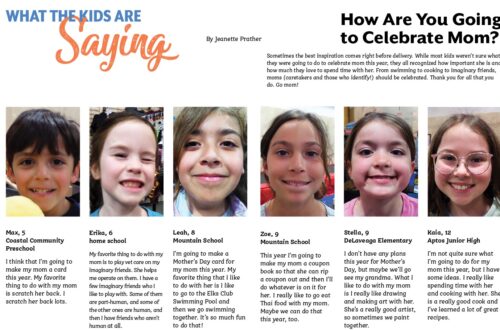Everyday Acts of Love
By Nicole M. Young, MSW

Dr. Gary Chapman says that everyone expresses and experiences love in the same five ways – physical touch, receiving gifts, words of affirmation (praise, positive feedback), acts of service, and quality time – but each person has a primary love language that is most meaningful to them.
Almost every Saturday morning, my husband cooks breakfast for both of us. He serves me first, bringing a plate (and often a coffee refill) into my home office, where I’ve usually been working for a couple of hours already (yes, even on weekends). We say very few words besides, “Here you go,” and “Yum! Thank you.”
This has become part of our weekend routine, without me even asking for it. This means more to me than a big, expensive gift because I know my husband’s unspoken words are, “I’m bringing you food because I know you’re working hard and will probably forget, or convince yourself you don’t have time, to eat. I care about your well-being (and don’t want you to get cranky).” The older I get, the more I value this and other simple, everyday acts of love from my husband, kids, and close friends and family members that make me feel valued and cared for. I hope they feel I do the same for them.
This monthly column provides tips for anyone helping raise children, based on the world-renowned Triple P – Positive Parenting Program, available to families in Santa Cruz County. If you have a question or idea for a future column, email me at [email protected].
Dear Nicole,
The pandemic has disrupted my family’s life. We’ve lost some close friends and family members to COVID, and the constant fear about getting sick and the confusion (and debates) over changing guidelines is wearing me down. I know I’m not as present and available for my kids (3, 7, 10) as I want to be. I’d like to do something special for Valentine’s Day that reminds my kids how much they’re loved, but I don’t have a lot of time, money, or energy to do something big. Can you share any ideas with me?
-Alisa
Dear Alisa,
That’s a good question, and you’re not alone. Everyday acts of love are easy to do and yet can be so easy to forget to do. Here are some ideas for simple ways to show your kids you love them on Valentine’s Day—and every day of the year:
Send mini “love letters”
Adults and children often forget to say, “I love you,” or they say these words out of habit without genuine feeling. Write a note, draw a picture, or send a text to each child with a short message that shows you care. Something as simple as, “I love you,” or “Your laugh makes me smile,” or a heart emoji can go a long way.
Express appreciation for each other
Model how to do this, then have everyone take turns doing the same with you and each other. Describe a quality that makes each child special, such as their creativity, humor, or compassion. Or acknowledge something they’ve done to be kind and helpful, like doing a chore with a cheerful attitude or helping a friend. Remember to be specific and sincere. Over time, expressing appreciation will become a habit.
Eat a meal together
Research shows that having regular family meals has tremendous benefits for children and youth, including better academic performance, higher self-esteem, and lower risk of substance abuse and depression. Family meals don’t have to be elaborate or expensive to be special. Eating together provides an important opportunity to talk with kids about their interests and what’s going on in their lives. Start a conversation about a topic they’re interested in—their friends, music, favorite toys, or the latest TikTok trend. Ask questions, listen to what they say, and encourage them to share their thoughts and opinions. This teaches valuable communication and social skills to help your children in future relationships.
Give and receive love in each person’s “love language”
Dr. Gary Chapman says that everyone expresses and experiences love in the same five ways – physical touch, receiving gifts, words of affirmation (praise, positive feedback), acts of service, and quality time – but each person has a primary love language that is most meaningful to them. Think about which love language means the most to each child and express your love for them in that way. This shows each child that you really see and understand them, and it also sets a good example for them about how to show others they care.
FINAL THOUGHTS
Simple, everyday acts of love are often the most meaningful. Giving and receiving love makes family life more joyful and satisfying, and it helps families handle stressful, challenging times by strengthening communication and connections.
Nicole Young is the mother of two children, ages 18 and 21, who also manages Santa Cruz County’s Triple P – Positive Parenting Program, the world’s leading positive parenting program. Scientifically proven, Triple P is made available locally by First 5 Santa Cruz County, the Santa Cruz County Health Services Agency (Mental Health Services Act) and the Santa Cruz County Human Services Department. To find a Triple P parenting class or practitioner, visit http://triplep.first5scc.org, http://www.facebook.com/triplepscc or contact First 5 Santa Cruz County at 465-2217 or [email protected].







